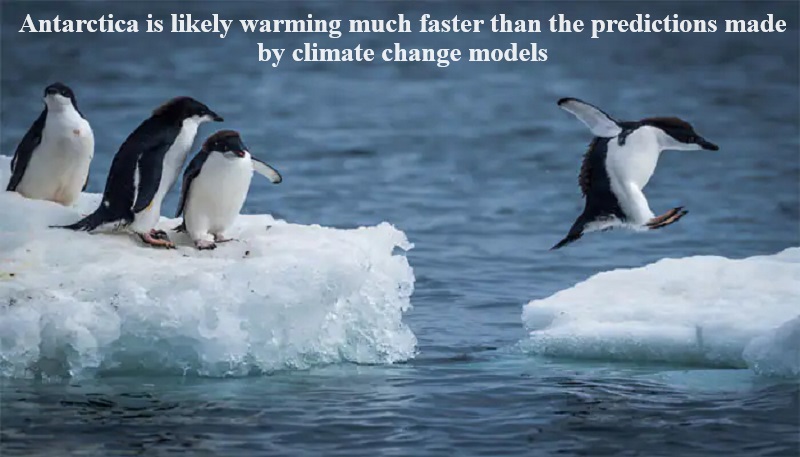
Antarctica is undergoing a potentially faster rate of warming than previously predicted by climate change models, according to a study cited in a report by The Guardian on September 7. Scientists analyzed 78 Antarctic ice cores, which provide a thousand-year temperature record, and determined that the warming across the continent exceeded what could be explained by natural climate variability.
The research involved analyzing these ice cores, which serve as a historical temperature record, and then comparing those temperatures with climate models and observational data. The study revealed that Antarctica is experiencing warming at a rate ranging from 0.22°C to 0.32°C per decade, surpassing the 0.18°C per decade predicted by climate models.
Dr. Mathieu Casado, the lead author of the study, noted that scientists have found direct evidence of polar amplification occurring in Antarctica. Dr. Casado, affiliated with France’s Science du Climat et de l’Environnement, expressed deep concern about such substantial warming in Antarctica, which exceeds natural variability.
The Guardian reported that in West Antarctica, a region considered highly vulnerable to warming due to its ice sheet, which could significantly raise global sea levels if it were to collapse, warming may be occurring at twice the rate predicted by climate models.
Dr. Sarah Jackson from the Australian National University, who was not involved in the study, described the findings as deeply alarming and suggested that current projections for future sea-level rise are based on these lower rates of warming. She cautioned that the loss of ice in Antarctica might be underestimated by current models.
Similarly, Dr. Danielle Udy from the University of Tasmania, who was not part of the study, emphasized the timeliness of this research in light of the extreme events observed in Antarctica. These findings highlight the urgency of addressing the potential consequences of accelerated warming in Antarctica, particularly its implications for global sea-level rise.

Post Your Comments